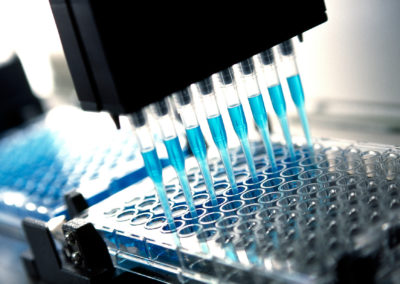“We must think creatively, to innovate and to avoid clinging to procedures just because they are familiar. On environmental policy, we can do better.” – George Eustice MP on changing our mindset about protecting the environment.
Saving the planet doesn’t have to cost the earth
Did the environment improve during lockdown? We saw images of usually smog-filled skylines change, with clean air coming back to major urban areas. In 2020, our environmental experts suggested that the impacts will be minimal unless we capitalise on wholesale changes to our way of life. Plus they also looked at how transition to net-zero emissions could significantly contribute to economic recovery after the COVID-19 crisis – and how lessons could be learnt from the recovery packages introduced following the 2008 financial crisis.
The COVID-19 crisis has given us an opportunity to take a long, hard look at how we can mitigate our impact on the environment. How will society, industry and your organisation move forward with environmentally and financially sustainable decisions?
Putting climate policies into practice
Researchers from our Centre for Environmental Policy, Grantham Institute and Energy Futures lab are experts constantly called upon for evidence in national and international debates about climate policy and behavioural changes including advice and guidance to the UK Government’s Environment Bill, prior to it being discussed in the House of Lords.
Our integrated approach to doing the hard research and interpreting impacts puts us in an excellent position to assess and consult on a variety of policy areas, from renewable energy and waste reduction to urban planning and transportation.
Academics working on Imperial’s Transition to Zero Pollution initiative aim to go beyond zero carbon and tackle pollution – from toxic metals and plastics to air pollution and CO2 levels. Scientists, engineers, clinicians, and economists will work together to create innovative technologies and solutions for industry, and policies that address entire systems and life cycles such as…
- zero waste and sustainable resource extraction,
- Sustainable, integrated food/water/energy systems
- Blue-Green cities
- Zero pollution transport, including electrification of transport and electric aircraft.
Technical solutions to pollution
- Lixea – whole-system approach to maximising the resources available from biomass fuel production and waste product recovery
- Treeconomy – brokering fairer and more accurate financial support for farmers and landowners to incentivise greater biodiversity protection measures
- Smartflap – reducing drag resistance for heavy vehicles and transport by up to 9%, increasing fuel efficiency
- Polymateria – utilising science and nature to tackle plastic pollution through biodegradable materials that meet environmentally sensitive production requirements
The financial benefits of environmental sensitivity
From protecting the environment, ecosystems and population’s water supplies to protecting your company from going under, our experts have a wealth of experience in whole-system management. Change isn’t cheap, but when there is no Planet B, the costs of retrofitting solutions will be far higher than making meaningful interventions now.
Net-zero emissions economic recovery
Economic growth will be a high priority for all countries in the months and years following COVID-19. The transition to net zero emissions can significantly contribute to the recovery.
COVID-19 and climate change
A special MSc Climate Change, Management and Finance lecture on how COVID-19 will affect action on climate change delivered by Imperial Business School and the Grantham Institute.
Greener vehicles
The Government wants every car and van to zero emissions by 2040. Lithium ion batteries are currently the most mature technology capable of meeting these targets, but there are alternatives on the horizon. Galvanic Energy can explain the limitations of current technologies or the risks associated with future ones.
Gamification of tree planting
Provide incentives and gamification for forestry projects through the Treemendo app, empowering engagement with nature and improving the environment.
Removing plastic from the food chain
Notpla, which creates packaging from sustainable seaweed and plant products, can produce edible packaging and bottles, as used at the London Marathon.
Creating reusable materials from discarded shells
Shellworks, recently awarded the top prize at the coveted Venture Catalyst Challenge Final, turns discarded shells from the food industry into reusable cutlery and products to reduce the need for plastic in the packaging pipeline.
Costs of cloud computing
IT services are increasingly outsourced to huge data centres, but it is not clear what greenhouse gas emissions they are responsible for. Progress is being made to reduce emissions, but more transparency is needed in accounting for emissions.
Phase II of the Rapid Foresight Survey
Aims to capture the pulse of the global community on the types of actions and technologies which could help to build back towards a more equitable, sustainable and resilient world.
Trees tackle climate change
What are the benefits – and limits – of using trees to tackle climate change? Is tree planting a silver bullet solution? Environmental, economic and societal benefits of using trees to reduce carbon dioxide discussed.
Find out how Imperial can help you with your specific needs be they immediate or a longer term goal.
Who to contact:

Anne Freitag
Engagement Manager
For Chemistry, Chemical Engineering, Earth Sciences, Bio Sciences, Life Sciences and Materials


